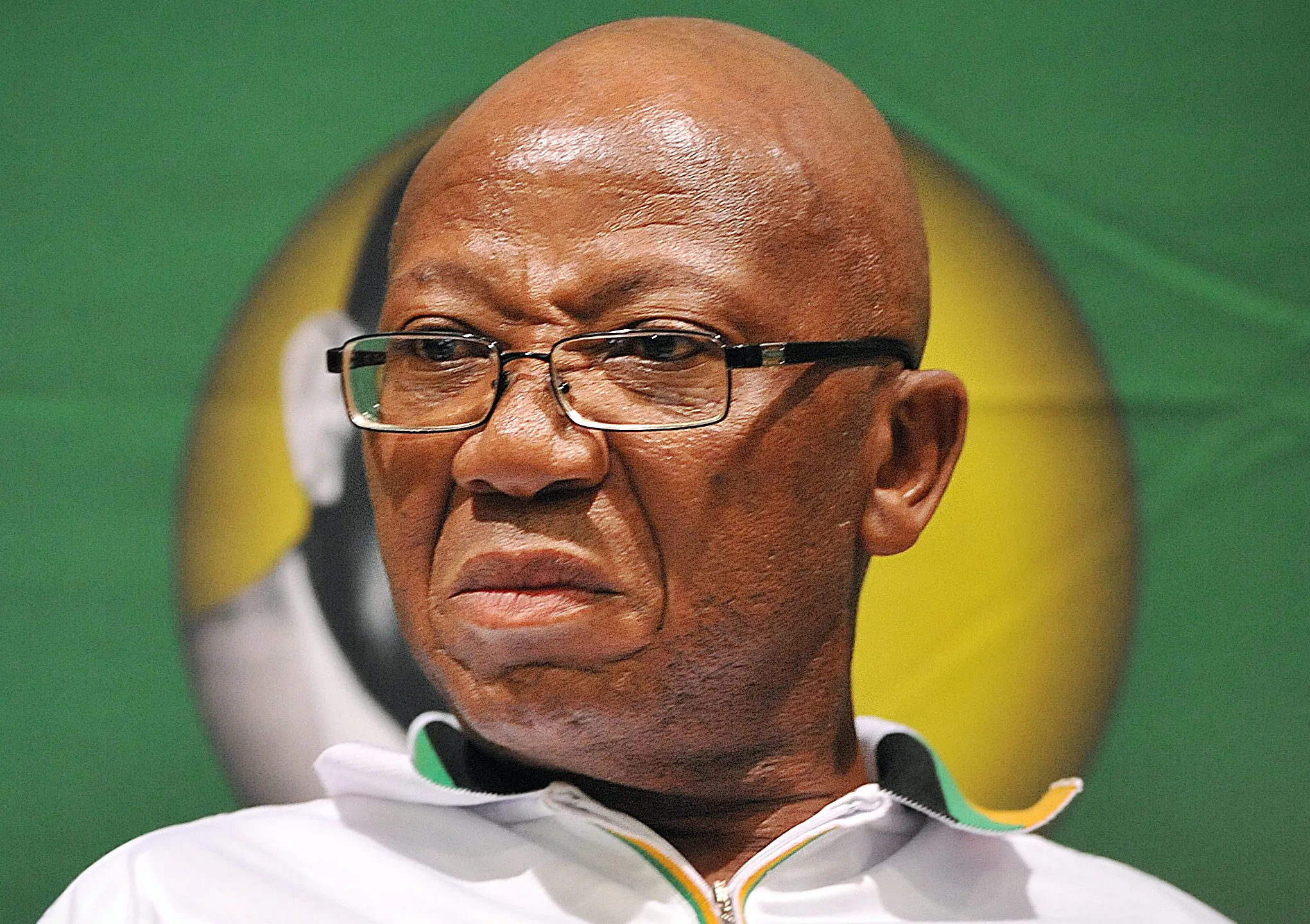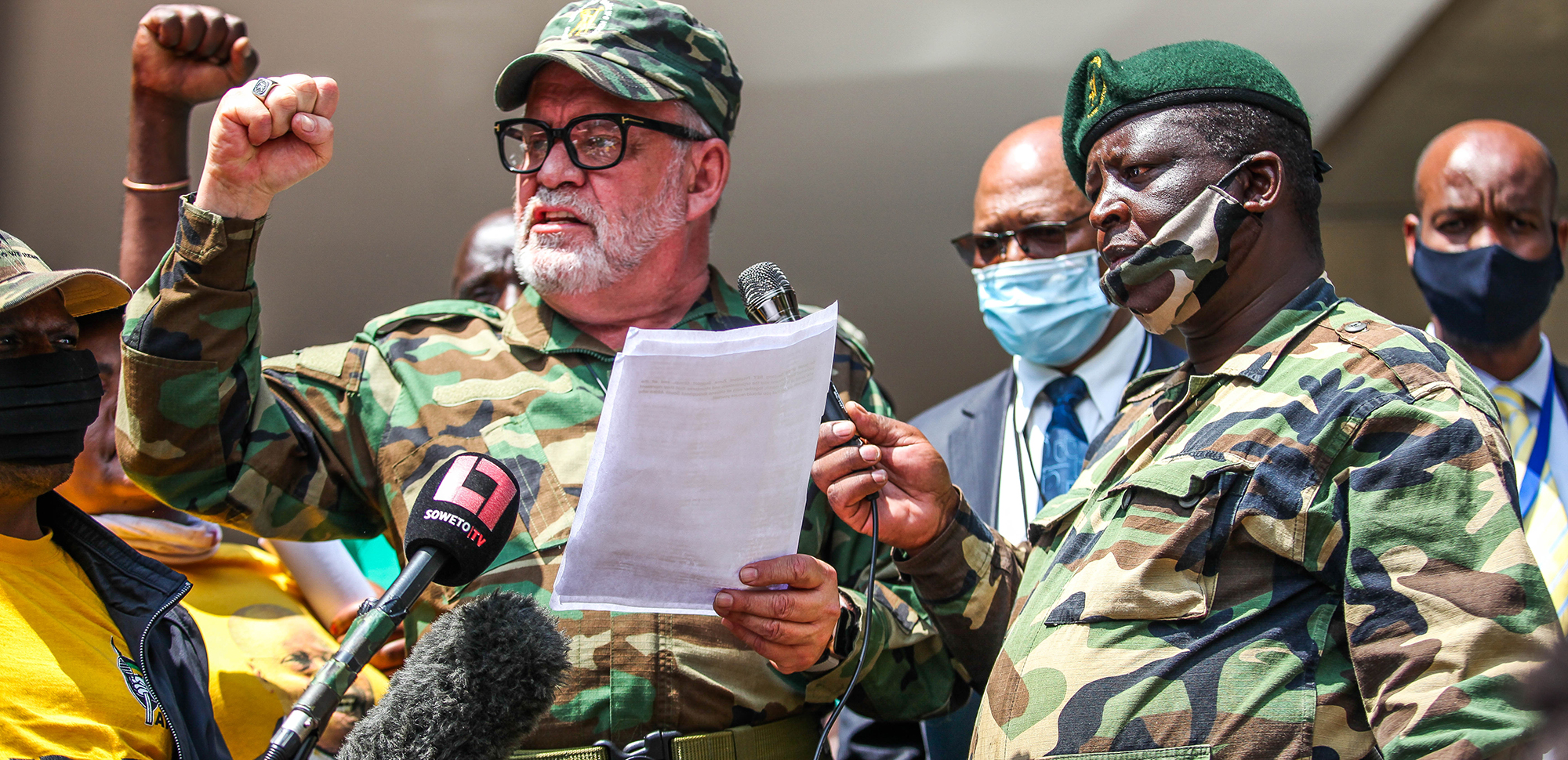The MK Military Veterans’ Association (MKMVA) was established principally to fend for the welfare needs of former Umkhonto weSizwe (MK) combatants, veterans of the struggle for liberation; and to keep them within the ANC’s guiding political ambit. MK itself, the military wing of the African National Congress during struggle days, ceased to exist in 1994, when South Africa’s first democratic government was formed.
MK members, like those of other armed formations that were involved on either side of the liberation struggle, were absorbed into the South African National Defence Force, the country’s national army. Those who did not wish to continue in the role of soldiers took up opportunities elsewhere in civilian service.
The extent to which the MKMVA leadership has fulfilled its primary mandate is unclear. The Military Veterans Act of 2011 placed an obligation on the state to provide qualifying military veterans and their dependents, from all veterans’ organisations, services and benefits that include: a military pension; housing; free access to military health services; free/subsidised access to public transport; skills acquisition and education support services; job placement; burial support; entrepreneurial support services; and counselling.
This, no doubt, went a long way towards providing a substantial part of the assistance the MKMVA was set up to source. It must be said, though, that the service provided by the Department of Military Veterans has consistently fallen short of expectations, to the obvious detriment of the intended beneficiaries. Unfortunately, the appointment of Maphatsoe as deputy minister in charge of veterans’ affairs did not a whit to redress the deficiency.
It appears that the MKMVA leadership made efforts that included acquiring shares for the organisation in a number of companies, including one called Islandsite Investments, owned by the Gupta brothers, notorious for masterminding the crippling “State Capture” project. (The Guptas are currently fugitives. They and Salim Essa have been blacklisted by the US Department of the Treasury’s Office of Foreign Assets Control and may not do business in the US, and with US businesses, because of their involvement in grand corruption in South Africa.)
Maphatsoe is quoted as saying he didn’t understand why people had problems with the Gupta family. He described criticism of the family as “racist and xenophobic”. With good reason. In 2010 the Guptas footed the bill for the MKMVA’s four-day national general council to the tune of R850,000.
During Maphatsoe’s chairmanship of the MKMVA Trust, an investigation was undertaken by SizweNtsalubaGobodo into the management of the trust’s finances. It unearthed gross irregularities. It found that Maphatsoe and three others personally received millions in benefits from MKMVA accounts. The South Gauteng High Court ruled that Maphatsoe and his friends must be removed from the trust. The court ruled that they had failed to exercise their responsibilities, prejudicing the intended beneficiaries. It is not easy to locate published MKMVA annual financial statements.
How sad for the duped and abused MKMVA members.
 Umkhonto weSizwe Military Veterans' Association chairperson Kebby Maphatsoe during a briefing by the ANC's top six officials at the party's headquarters in Johannesburg. (Photo: Gallo Images / Foto24 / Lucky Maibi)
Umkhonto weSizwe Military Veterans' Association chairperson Kebby Maphatsoe during a briefing by the ANC's top six officials at the party's headquarters in Johannesburg. (Photo: Gallo Images / Foto24 / Lucky Maibi)
For a number of years, the MKMVA has thrown itself into the political arena as an unabashed supporter of former president Jacob Zuma. In 2016, Maphatsoe and MKMVA were ordered by a high court to pay Ronnie Kasrils, a former MK commander, R500,000 for defamation for alleging that Kasrils orchestrated Zuma’s rape charges. Maphatsoe admitted that his statements were “false, offensive and unacceptable”.
In 2014, Maphatsoe accused former Public Protector Thuli Madonsela of being “a CIA agent”. When asked to provide evidence of this, he withdrew the allegation and apologised. Maphatsoe, who lost his right arm to a sniper’s bullet while absconding from an ANC military camp in Uganda in 1989, was appointed deputy minister of military veterans in May 2014 by then-president Zuma.
Wearing army camouflage, MKMVA stages street demonstrations. It has marched to Luthuli House to demand the implementation of ANC conference resolutions that call for the nationalisation of the Reserve Bank. It has proclaimed support for what is touted as “radical economic transformation”. Post the Zuma presidency, it has marched on the streets to protest against its members’ lack of employment, blaming it on ANC corruption. At the time of writing, a group of MKMVA “veterans” are encamped outside Zuma’s Nkandla home, daring any law enforcement agency to arrest Zuma for defying a court ruling that testifies at the State Capture commission.
The less said about the apparently sociopathic Carl Niehaus, the MKMVA spokesperson, the better. Most intriguing is the fact that the ANC leadership is not discomfited by the knowledge that in 2005, Niehaus forged the signatures of several top Gauteng ANC officials, including then MEC Paul Mashatile, in order to secure a loan; that in 2009, he had to step down as spokesperson of the ANC after M&G reported on his “broad trail of bad debt and broken promises”; and that in order to wriggle out of paying a R4.3-million debt, he claimed that his mother had died?
Allowing dodgy characters like Maphatsoe and Niehaus to use MKMVA as a tool to fight ANC factional battles is an egregious act of betrayal. It was not for this that Chris Hani, Basil February, Nokuthula Simelane, Solomon Mahlangu, Barney Molokwane, Mlungiseleli Velaphi, Abram Moroe and many others too numerous to mention here, paid the supreme sacrifice. It behoves those now in power to show a modicum of respect, and gratitude, to the fallen struggle heroines and heroes without whom they would not be in their comfort zones. DM




 Umkhonto WeSizwe Military Veterans Association Chairperson Kebby Maphatsoe during a briefing by the ANC's top six officials at the party's headquarters in Johannesburg. (Photo by Gallo Images / Foto24 / Lucky Maibi)
Umkhonto WeSizwe Military Veterans Association Chairperson Kebby Maphatsoe during a briefing by the ANC's top six officials at the party's headquarters in Johannesburg. (Photo by Gallo Images / Foto24 / Lucky Maibi) 